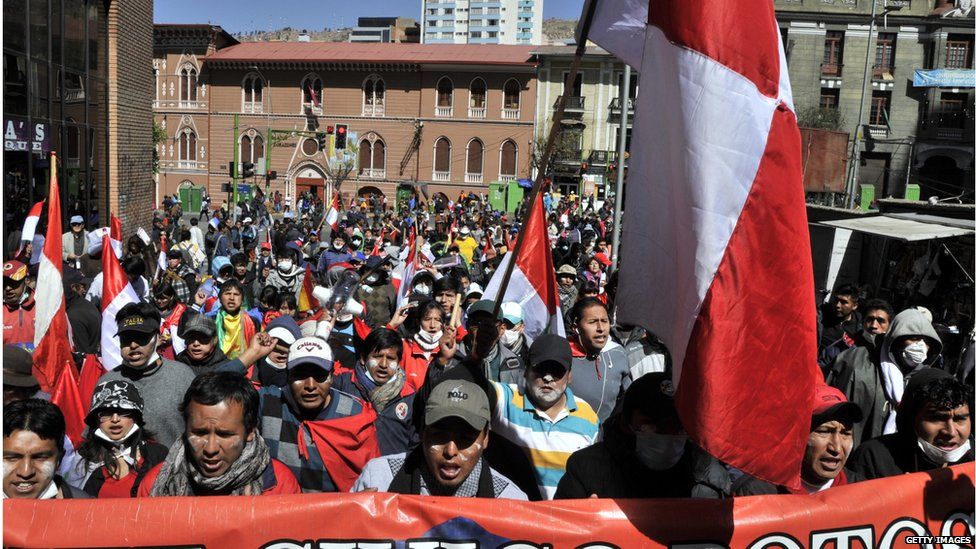-
17 July 2015
- From the section Latin America & Caribbean

Protesters have cut off access to the Bolivian mining city of Potosi in a dispute with the government over infrastructure investment.
Access to the city of more than 130,000 people has been blocked by thousands of protesters as part of an 11-day strike.
Local media report that the city has almost run out of petrol, food and money.
Around 100 foreigners, mostly Argentine tourists, have been trapped by the roadblocks.
Many of the Argentines had travelled to the area for the Pope’s visit last week.
Twenty French youth volunteer workers, three Britons and one Russian are also among the stranded foreigners.
One of the stranded British tourists told the AFP news agency that police were working on a plan to get them out by bus.
The authorities admit that they have so far been powerless to break the picket lines.
“Despite efforts that have already been made to leave the department by land, these efforts have not succeeded,” government minister Carlos Romero told AFP.
The protesters are demanding increased government investment in public infrastructure.
Reuters news agency reports that clashes between the police and protests have left four people injured.
The strikers carried out a similar protest in 2010 that brought the city to a halt and caused food shortages.
Potosi is famous for its mining heritage and was recently included on the UN cultural body Unesco’s list of World Heritage Sites in danger.
The mines were a source of huge riches for Spain until the end of colonial rule in the 19th Century.
Potosi’s mine became the world’s biggest after silver was discovered there by the Spanish in 1545.


